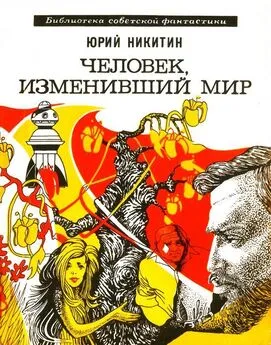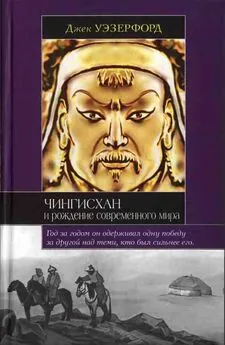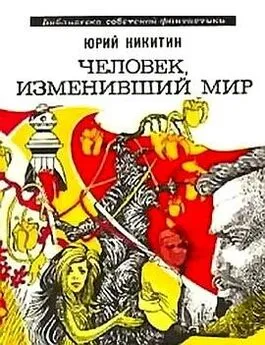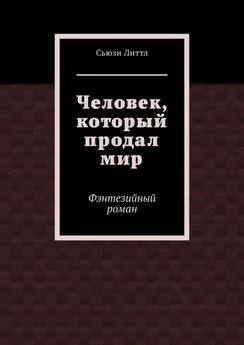Фрэнк Маклинн - Чингисхан. Человек, завоевавший мир
- Название:Чингисхан. Человек, завоевавший мир
- Автор:
- Жанр:
- Издательство:АСТ
- Год:2019
- Город:Москва
- ISBN:978-5-17-095186-4
- Рейтинг:
- Избранное:Добавить в избранное
-
Отзывы:
-
Ваша оценка:
Фрэнк Маклинн - Чингисхан. Человек, завоевавший мир краткое содержание
Чингисхан. Человек, завоевавший мир - читать онлайн бесплатно ознакомительный отрывок
Интервал:
Закладка:
847
For Tolui's lineage see Boyle, Successors, pp. 159–162.
848
For Tolui's lineage see Boyle, Successors, p. 164.
849
JR II p. 1093; Thomas AUsen, 'The Yuan Dynasty and the Uighurs of Turfan,' loc. cit. p. 271.
850
For Shigi see Ratchnevsky, 'Sigi-qutuqu, ein mongolischer Gefolgsmann im 12–13 Jahrhundert,' Central Asiatic Journal 10 (1965) pp. 87–120; Rachewiltz, In the Service pp. 75–94. The foundling story is in JR II p. 1093 and in F. Aubin, 'Le statut de l'enfant dans la societe mongole,' L'Enfant 35 (1975) pp. 459–599 (at pp. 471–472) but is adequately rebutted in Rachewiltz, Commentary p. 497.
851
Harcourt & Evans, Said Gah-I-Shaukati; Philott, Baz-nama-yi Nasiri; Argue, George Turberville; Latham, Travels of Marco Polo p. 144.
852
Чудо мира, удивление мира ( лат .).
853
Macdonald, Falcon pp. 52–56, 90.
854
Macdonald, Falcon p. 59.
855
For an exact description and analysis of the swans Genghis's falcons might have killed see Baker, Game Birds pp. 20–27; cf also Upton, Falconry.
856
RT I p. 147.
857
Rachewiltz, Commentary p. 726.
858
RT I p. 148; JR II pp. 1091–1092.
859
JR II p. 1092.
860
RT I p. 149.
861
JR II p. 1007; Lech, Mongolische Weltreich pp. 98, 201–203; Waley, Travels of an Alchemist p. 54.
862
The judgement is that of Ratchnevsky, Genghis Khan p. 165. For the all-girl orchestra see Vladimirtsov, Genghis p. 124.
863
Rachewiltz, Commentary pp. 726–727.
864
SHO pp. 130–131; SHR p. 79.
865
Оскорбление его (ее) величества ( фр .).
866
Rachewiltz, Commentary p. 577.
867
RT I pp. 148–149; d'Ohsson, Histoire I pp. 418–419.
868
See the opposing views in Pelliot & Hambis, Campagnes p. 375 and F. Aubin, 'Le statut de l'enfant,' loc. cit. pp. 471–475.
869
Pelliot, Notes critiques d'histoire Kalmouke, I pp. 61–62; Boyle, Successors p. 164; Rachewiltz, Commentary pp. 854–856, 914–915.
870
Quoted in Zhao, Marriage p. 37.
871
Quoted in Zhao, Marriage pp. 28–29.
872
RT I pp. 25–26.
873
Zhao, Marriage pp. 93–118 (Ongirrad); pp. 119–126 (Ikires); pp. 127–146 (Oyirad); pp. 163–178 (Uighurs). See also Jennifer Holmgren, 'Observations on Marriage and Inheritance Practices in Early Mongol and Yuan Society with Particular Reference to the Levirate,' Journal of Asian History 20 (1986) pp. 127–192.
874
May, Culture and Customs pp. 37–39, 103–115.
875
'A Mongol woman does many things that in other Asiatic socities would be men's work. She does them responsibly and without being told, because in the normal life the men are frequently away from home' (Lattimore, Mongol Journeys p. 186).
876
Riasanovsky, Fundamental Principles p. 242.
877
Lane, Daily Life pp. 228–229.
878
Jackson & Morgan, Rubruck p. 74.
879
For a full analysis of Borte in this period see Rachewiltz, Commentary pp. 350–357.
880
d'Ohsson, Histoire I p. 329.
881
Marsden, Travels of Marco Polo pp. 417–419.
882
Jennifer Holmgren, 'Observations on Marriage,' loc. cit.; Riasanovsky, Fundamental Principles pp. 234–238.
883
RT I p. 89.
884
Zhao, Marriage pp. 18–19.
885
Skelton, Marston & Painter, Vinland Map.
886
Riasanovsky, Fundamental Principles pp. 241–242.
887
Schuyler Cammann, 'Mongol Costume: Historical and Recent,' in Sinor, Aspects pp. 157–166; Dawson, Mongol Mission pp. 7–8; Jackson & Morgan, Rubruck p. 89; Bretschneider, Mediaeval Researches I pp. 52–53; Yule, Cathay II p. 222; Waley, Travels of an Alchemist p. 67.
888
Ratchnevsky, 'La condition de la femme mongole,' loc. cit p. 516.
889
Gibb, Ibn Battuta II p. 480; Dunn, Adventures pp. 299–300; Hamdun & King, Ibn Battuta pp. 38–39. For Christian disapproval see Lisa Balabanlilar, 'The Begims of the Mystic Feast. Turco-Mongol Tradition in the Mughal Harem,' Journal of Asian Studies 69 (2010) pp. 123–147.
890
Ostrowski, Muscovy and the Mongols pp. 73, 81.
891
JB II p. 52; Boyle, Successors pp. 159, 168, 197, 199–200; Budge, Chronography p. 412; Morris Rossabi, 'Kublai Khan and the Women in his Family,' in Bauer, Studia Sino-Mongolica pp. 153–180 (at pp. 158–166); Dawson, Mongol Mission p. 26; Jackson & Morgan, Rubruck p. 125; Pelliot, 'Le vrai nom de "Seroctan",' T'oung Pao 29 (1932) pp. 43–54.
892
Хулагу-хан — ильхан, правитель созданного им государства Хулагуидов, включавшего Иран, большую часть современной территории Афганистана, Туркмении, Закавказья, Ирака, восточную часть Малой Азии. — Прим. пер .
893
Ratchnevsky, 'La condition de la femme mongole," loc. cit. pp. 517–518, 522.
894
У автора — Orgina . Другое написание в русскоязычных источниках — Ургана-хатун. — Прим. пер .
895
Zhao, Marriage p. 29; Barthold, Turkestan pp. 487–491.
896
JR II p. 1144; JB I pp. 245–246; Boyle, Successors pp. 176, 242; Budge, Chronography p. 412.
897
See Lane, Daily Life pp. 239–254 for all details on these. Cf also Rossabi, 'Kublai Khan and the Women," loc. cit; George Qingzhi Zhao & Richard W. L. Grisso, 'Female Anxiety and Female Power: Political Intervention by Mongol Empresses during the Thirteenth and Fourteenth Centuries," Toronto Studies in Central Asia 7 (2005) pp. 17–46; Weatherford, Secret History of the Mongol Queens.
898
Rachewiltz, Commentary p. 491. For the 1196 campaign see Pelliot & Hambis, Campagnes pp. 199–203.
899
See Lewis, China's Cosmopolitan Empire.
900
Brook, Troubled Empire pp. 26, 65, 80, 82, 260.
901
'The conquest of China was not a primary goal of the Mongols but, ironically, simply a consequence of their having completely destroyed the Jurchen Chin regime which they had planned to extort' (Barfield, Perilous Frontier p. 197).
902
Lattimore, 'The Geography of Chingis Khan," Geographical Journal 129 (1963) pp. 1–7; S. Bira, 'The Mongolian Conception of Chinggis Khan: Historic and Mythical Hero," Mongolica 3 (1992) pp. 32–47.
903
Barfield, Perilous Frontier pp. 49–51, 91–94, 150–151.
904
Larry V Clark, 'The Theme of Revenge," in Clark & Draghi, Aspects II pp. 37–57; Lien-sheng Yang, 'Hostages in Chinese History," in Yang, Studies pp. 43–57.
905
SHC p. 186.
906
Joseph Fletcher, 'The Mongols: Ecological and Social Perspectives," Harvard Journal of Asiatic Studies 46 (1986) pp. 11–50 (at pp. 32–33); Grenard, Genghis pp. 111–112; H. Franke, From Tribal Chieftain pp. 17–18; Sechin Jachid, 'Traditional Mongol Attitudes and Values as Seen in the Secret History of the Mongols and the Altan Tobchi,' in Jagchid, Essays pp. 51–66.
907
Barthold, Turkestan pp. 393–396; Vladimirtsov, Genghis pp. 76–77.
908
Fletcher, 'The Mongols," loc. cit. pp. 32–33; Barfield, 'Inner Asia and the Cycles of Power in China's Imperial History," in Seaman and Marks, Rulers from the Steppe pp. 21–62 (at p. 25).
909
J. P. Marques, 'Sur la nature du nomadisme des steppes eurasiatiques," L'Homme 108 (1988) pp. 84–98.
910
«Датские деньги» — в X–XII веках ежегодный налог в Англии для уплаты дани скандинавским викингам. — Прим. авт .
911
Denis Sinor, 'The Greed of the Northern Barbarians," in Clark & Draghi, Aspects pp. 171–182.
912
Gumilev, Imaginary Kingdom p. 177.
913
Khazanov, Nomads and the Outside World pp. 235–236; Khazanov, 'Ecological Limitations of Nomadism in the Eurasian Steppes and their Social and Cultural Implications," Asian and African Studies 24 (1990) pp. 1–15.
914
Fletcher, 'The Mongols," loc. cit. p. 15.
915
Barfield, Perilous Frontier pp. 164–186.
916
Using the famous bifurcation suggested by Claude Levi-Strauss, one scholar has differentiated between the 'raw' barbarians of Outer Mongolia and the 'cooked' tribes within the shadow of the Great Wall (Magnus Fiskesjo, 'On the "Raw" and "Cooked" Barbarians of Imperial China,' Inner Asia t (1999) pp. 139–168).
917
Paul D. Buell, 'The Role of the Sino-Mongolian Frontier Zone in the Rise of Chingis Qan,' in Schwarz, Studies on Mongolia pp. 63–76 (esp. pp. 63–68).
918
For the preliao history of the Khitans see Xu, Historical Development, esp. pp. 237–258; Herbert Franke, 'The Forest Peoples of Manchuria: Khitans andjurchens,' in Sinor, Cambridge History pp. 400–423; Barfield, Perilous Frontier pp. 168–173.
919
У автора — A-Pao-Chi , Абаоцзи, в «Британской энциклопедии» — Abaoju , на китайском языке — Тзйзу Ляо, на монгольском — Елюй. — Прим. пер .
920
For the emperors who succeeded A-Pao-Chi, of whom the most distinguished and long-lived was Sheng-Tsun (982–1031) see Franke & Twitchett, Cambridge History pp. 56–123; Moule, Rulers of China pp. 91–95.
921
For the foundation of the Tangut state see Dunnell, Great State p. 3.
922
Pelliot, Notes sur Marco Polo I pp. 216–229; Barfield, Perilous Frontier p. 174.
923
Tao, Two Sons passim; Di Cosmo & Wyatt, Political Frontiers pp. 192–219; Standen & Powers, Frontiers in Question.
Читать дальшеИнтервал:
Закладка:
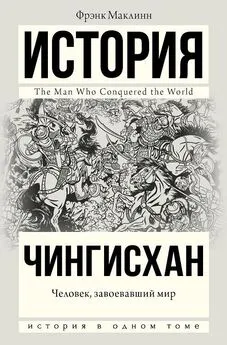

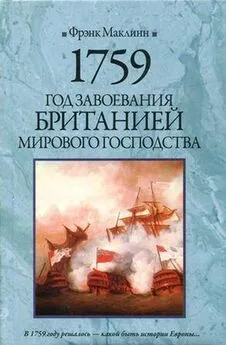
![Ксения Чепикова - Человек, научивший мир читать [История Великой информационной революции]](/books/1059757/kseniya-chepikova-chelovek-nauchivshij-mir-chitat-ist.webp)
